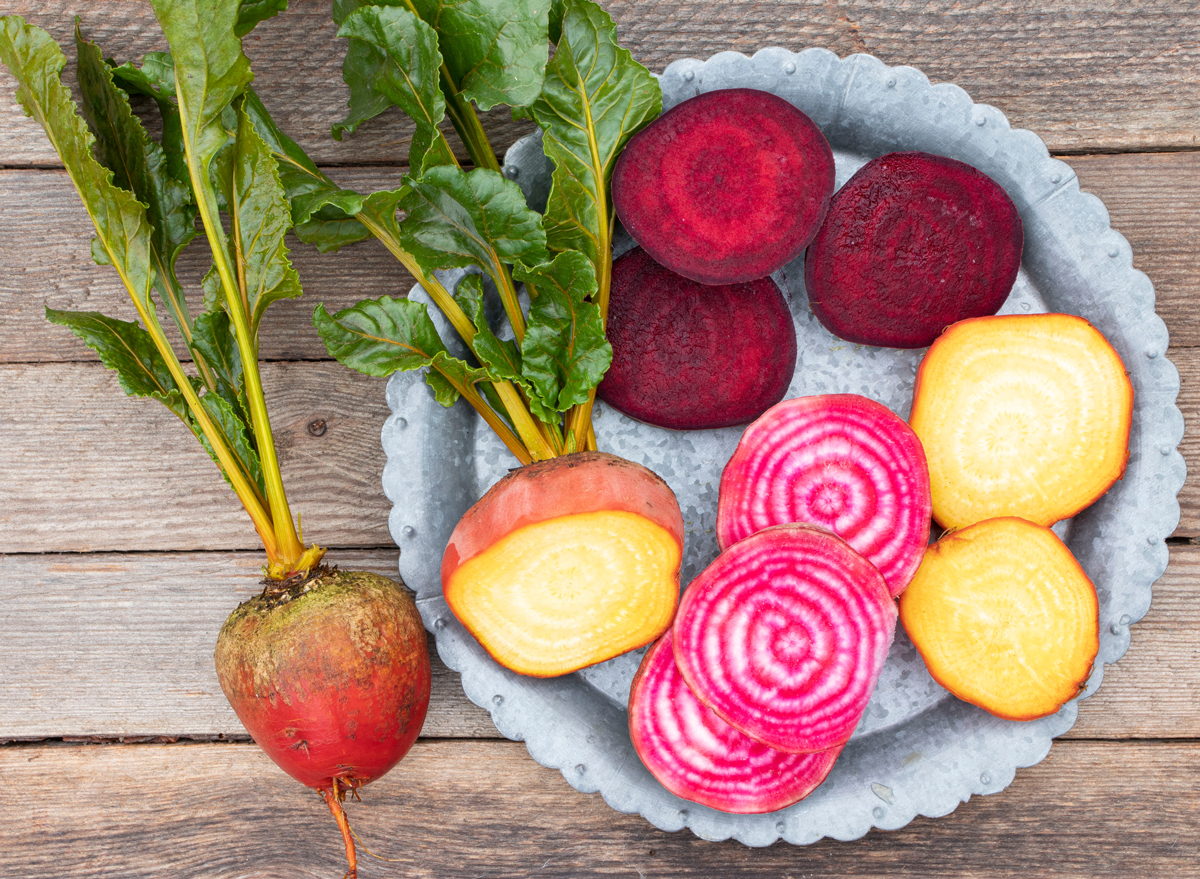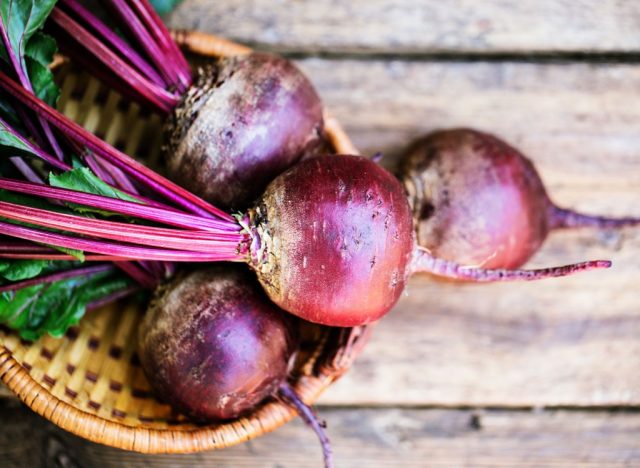#1 Best Vegetable To Lower Blood Pressure, Says Dietitian

A whopping 116 million Americans have high blood pressure, which puts this huge proportion of people at an increased risk of experiencing some pretty scary health outcomes, like heart disease and stroke.
Needless to say, many people try to lower their blood pressure to help curb their risk of these potentially fatal effects. Some tried-and-true recommendations for managing blood pressure include limiting sodium intake, exercising, and following the DASH diet, or the Dietary Approaches to Stop Hypertension diet. Within this diet, created specifically to lower blood pressure, people are encouraged to eat many heart-healthy foods, including vegetables.
How vegetables play a role in blood pressure regulation
Vegetables are typically chock-full of healthy blood pressure-supporting nutrients (like fiber) and are naturally low in sodium. Certain varieties of veggies are also natural sources of calcium, magnesium, and potassium: three minerals that are emphasized in the Dietary Approaches to Stop Hypertension diet, as consuming them in adequate amounts helps support healthy blood pressure.
Eating more vegetables—regardless of the type—is always a good idea, regardless of whether you are trying to support a healthy blood pressure or otherwise. But if you are looking for the #1 best vegetable to include in your healthy blood pressure diet, beets deserve the grand prize.
Beets are the #1 vegetable for healthy blood pressure

Surprisingly sweet, beautifully colored, and incredibly versatile, the beloved veggie that is the shining star of salads paired with goat cheese, wraps, and even some fancy smoothies may not be top-of-mind when considering which food to eat when trying to keep your blood pressure healthy, but it should be. In fact, beets are one of the best foods you can possibly eat if you have high blood pressure.
Why beets?
Not only do beets check so many boxes when it comes to heart-healthy foods, including being naturally low in sodium, free from added sugars, and free from saturated fat, but they contain a slew of other important factors that satisfy guidelines when following the DASH diet, including being a source of the ever-important calcium, magnesium, and potassium minerals.
Beets also contain dietary nitrates: natural chemicals that are converted to nitric oxide in the body. Nitric oxide is a vasodilator, which is a chemical that relaxes the inner muscles of your blood vessels and promotes an increase in blood flow. In turn, vasodilators like nitric oxide can help reduce blood pressure.
In clinical trials, data shows that drinking beetroot juice that is made from real beets may help reduce blood pressure. A systematic review and meta-analysis published in Frontiers in Nutrition showed that drinking beetroot juice within a range of 3 to 60 days improved systolic blood pressure among study subjects.
And according to results of a randomized crossover trial published in the Journal of the Academy of Nutrition and Dietetics, consuming nitrate-rich vegetables, like beets, offered a positive effect on blood pressure measurements among young adults.
How to add more beets to your diet
If you aren’t a fan of beets, you don’t have to force-feed yourself servings of this popular root veggie if you want to reap the benefits of consuming a natural source of nitrates. Including green leafy veggies, radishes, and onions will also give your body a boost of this beneficial compound, allowing you to skip the beets altogether.
But if you are a beetroot fan, and your goal is to support your blood pressure in a natural way, including this veggie in your salads, your juices, and as a main ingredient in your classic borscht may help you see the results you are trying to see. Just be sure to have a stain stick handy when you indulge (they stain!).
So, sneak some beets in your hummus, add some to your smoothie, or enjoy some in powder form for a satisfying beetroot latte. Your heart will thank you for it.